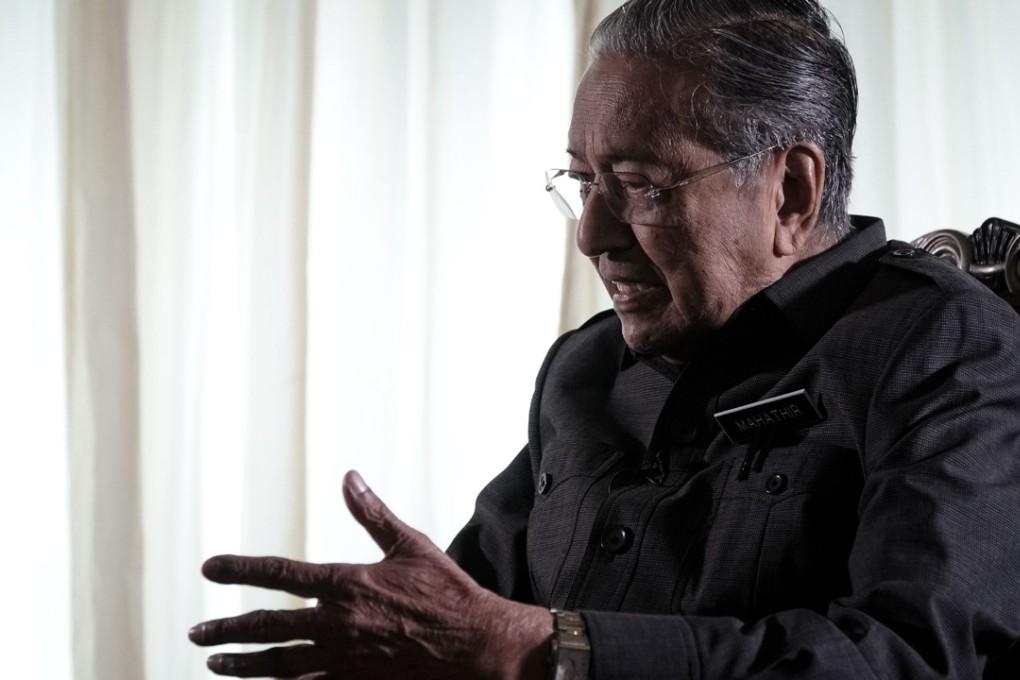Advertisement
Exclusive | Forget the warships: Malaysian PM Mahathir’s peace formula for South China Sea
‘Someday, somebody might make some mistakes and there will be a fight, some ships will be lost, and there might be a war,’ warns the Malaysian prime minister
Reading Time:3 minutes
Why you can trust SCMP

Keep out the warships and instead have joint small-boat patrols – that is Malaysian Prime Minister Mahathir Mohamad’s prescription for maintaining peace in the disputed and resource-rich South China Sea.
“I think there should not be too many warships. Warships create tension,” the 92-year-old leader told the South China Morning Post in an exclusive interview.
“Someday, somebody might make some mistakes and there will be a fight, some ships will be lost, and there might be a war. We don’t want that.”
Advertisement
Mahathir’s comments were his fullest yet on the contentious territorial dispute since he became prime minister after his crushing defeat of his protégé-turned-rival Najib Razak in the May 9 general election.
With an eye on a greater share of China’s economic largesse, the scandal-plagued former prime minister Najib was attacked for softening Malaysia’s position on the South China Sea – which is claimed almost in its entirety by Beijing. Beijing’s claims compete not only with those of Malaysia, but with various other jurisdictions, including Taipei, Indonesia, the Philippines, Vietnam and Brunei.
Every year, some US$3 trillion worth of goods pass through the disputed waterway, rich in fisheries and potential oil and gas reserves.
Advertisement
Select Voice
Select Speed
1.00x